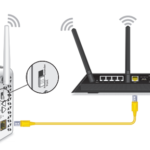Let’s face it. The key to successful CFD trading is to have a good, profitable, consistent and excellent CFD trading system.
But what many are unaware of is that having a good online CFD broker is also important for success in CFD trading.
why?
By choosing the right CFD broker, you can determine if you can trade your system properly. This includes whether you can trade the number of CFDs you need to trade, whether you can short a sufficient number of CFDs, whether you can order the order type you need, and the transaction costs to increase the profitability of your trades. Includes whether it can be kept as low as possible. system!
By the end of this article, you should have understood the seven keys to choosing a CFD online broker that will enable you to trade properly and maximize your returns from your CFD trading system.
Today, CFD brokers are mostly online and use electronic platforms, which significantly speeds up trading routines. Of course, unless you have a question or need help with a particular order, you can trade without calling or talking to a CFD broker.
Therefore, keep these points in mind when browsing their website. Some of them will only be noticed if you have actually traded CFDs with an online CFD broker.
Here are seven things to consider when choosing a CFD broker online:
1. Margin requirements.
Most CFD brokers have a margin requirement of about 10% (typically 5-20%), which provides about 10 to 1 leverage. This is a significant amount of leverage that allows for high profits from CFDs when compared to stocks and stock trading. However, keep in mind that some CFD brokers require a margin of 30-80% and vary from CFD to CFD, which far limits the leverage available to these brokers. Therefore, if it is important to use leverage (which is important for most of us), check the amount of leverage available.
2. One-way brokerage or fees
CFD one-way fees are typically around 0.1-0.2% of the transaction size. Most brokers also have a minimum fee of about $ 10-25 to cover small transaction sizes. What you should understand here is that some CFD brokers are negotiable fees and they say so on their website. So don’t forget to ask!
3. Number of CFDs that can be traded
A sufficiently large number of CFDs available for trading is a much greater profit than if it were designed to trade only the top 30 or 100, for example, when trading on the top 200 or 300 CFDs. This is important if you are trading a system that produces. ..
If your system is designed to generate a certain profit with a certain number of CFDs, you need to make sure that you can trade this number of CFDs. We recommend that you backtest using the current list of CFDs provided by the provider you plan to trade with. This shows that you are designing a system that you can actually apply.
4. Number of CFDs that can be shorted
The fact that more CFDs can be shorted is another feature of CFDs, which dramatically improves the profitability of CFDs over stocks. What you need to make sure is that CFD online brokers allow short-term trading on a significant number of the total CFDs available. It may be helpful to backtest your system with a real list of shortable CFDs and double-check that your system reflects real deals.
5. What are the order types that can be ordered?
Most CFD providers can order at any time, that is, when the market is open or closed. So if you are working during the day, you can place all orders at night, including limit orders to enter positions, without having to monitor prices at all during the day.
However, some providers can only place entry orders during market hours. So you have to be there while the market is open.





